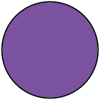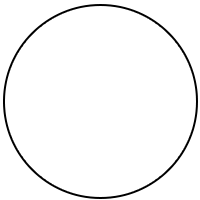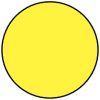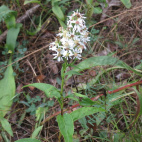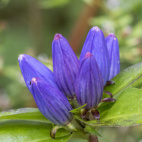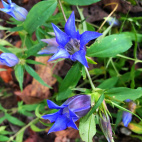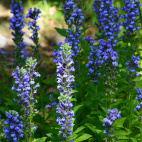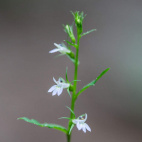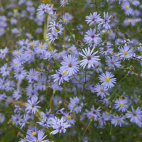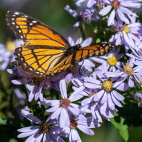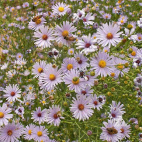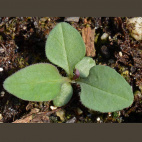Color
Availability
USDA Zone
Region
Type
Duration
Season
Germination
Soil
Sunlight
Height
Use
Narrow Your Search
Color
Availability
USDA Zone
Region
Type
Duration
Season
Germination
Soil
Sunlight
Height
Use
Wildflower Seeds - Northern Region
The Northern region is home to our Canadian friends in the eastern provinces, as well as the northern-most part of the Eastern US. This area is characterized by a long, cold winter with lots of snow, and a short humid summer that only lasts about 3 or 4 months. Most of the area is classified as a UDSA Growing Zone 4 or less, and the species that grow here have interesting ways to perpetuate themselves in spite of the short growing season. There are a lot of forests and wetlands in this region, so adequate moisture is hardly ever a problem. Look up your growing zone to make sure that the Northern wildflower seeds that you want to grow are winter hardy. Alternatively, just order annual flower seeds online so that the plant does not need to make it through the winter, but can reseed itself and come back from seed the next year.
-
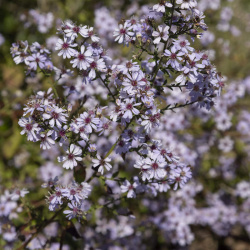 Arrow Leaved Aster Seeds
Aster sagittifolius
Delightful clusters of pale blue and lavender flowers add beauty to any planting in the fall season. Though no longer common in the wild, this Aster occasionally grows in open woodland areas or prairies.Quick View$3.75 Pkt - $54.00 / Oz
Arrow Leaved Aster Seeds
Aster sagittifolius
Delightful clusters of pale blue and lavender flowers add beauty to any planting in the fall season. Though no longer common in the wild, this Aster occasionally grows in open woodland areas or prairies.Quick View$3.75 Pkt - $54.00 / Oz -
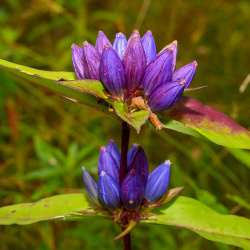 Bottle Gentian Seeds
Gentiana andrewsii
Named for their nearly closed tubular blossoms, these unusual wildflowers look like buds about to burst open. The only way they get pollinated is that bumblebees force their way in and do their duty.Quick View$3.75 Pkt - $100.00 / Oz
Bottle Gentian Seeds
Gentiana andrewsii
Named for their nearly closed tubular blossoms, these unusual wildflowers look like buds about to burst open. The only way they get pollinated is that bumblebees force their way in and do their duty.Quick View$3.75 Pkt - $100.00 / Oz -
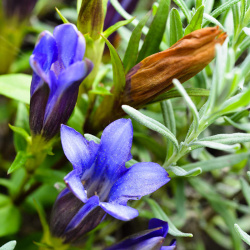 Out Of Stock
Downy Gentian Seeds
Gentiana puberulenta
Nearly identical to the traditional European gentian, this American native tolerates drought better than it's cousin. The deep violet blossoms spring up in prairies or rocky ground.Quick Viewx
Out Of Stock
Downy Gentian Seeds
Gentiana puberulenta
Nearly identical to the traditional European gentian, this American native tolerates drought better than it's cousin. The deep violet blossoms spring up in prairies or rocky ground.Quick ViewxDowny Gentian Seeds
Gentiana puberulenta
Nearly identical to the traditional European gentian, this American native tolerates drought better than it's cousin. The deep violet blossoms spring up in prairies or rocky ground.
$3.96 Pkt - $200.00 / Oz -
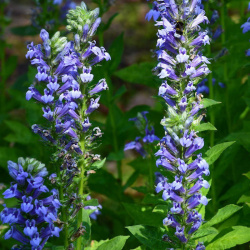 Great Blue Lobelia Seeds
Lobelia siphilitica
These intense blue beauties contrast beautifully with Cardinal Flower - their deep red cousin. Both love moisture and can be planted in low-lying areas such as around ponds or near streams. The tall spikes are also attractive to hummingbirds and butterflies.Quick Viewx
Great Blue Lobelia Seeds
Lobelia siphilitica
These intense blue beauties contrast beautifully with Cardinal Flower - their deep red cousin. Both love moisture and can be planted in low-lying areas such as around ponds or near streams. The tall spikes are also attractive to hummingbirds and butterflies.Quick ViewxGreat Blue Lobelia Seeds
Lobelia siphilitica
These intense blue beauties contrast beautifully with Cardinal Flower - their deep red cousin. Both love moisture and can be planted in low-lying areas such as around ponds or near streams. The tall spikes are also attractive to hummingbirds and butterflies.
$3.75 Pkt - $36.00 / Oz -
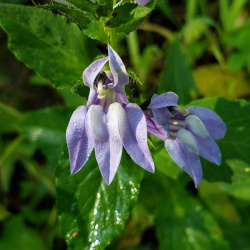 Indian Tobacco Seeds
Lobelia inflata
Though once used as a native medicinal remedy, this pale purple wildflower is best enjoyed visually. This flower is a native annual that readily reseeds for the following growing season.Quick View$3.75 Pkt - $100.00 / Oz
Indian Tobacco Seeds
Lobelia inflata
Though once used as a native medicinal remedy, this pale purple wildflower is best enjoyed visually. This flower is a native annual that readily reseeds for the following growing season.Quick View$3.75 Pkt - $100.00 / Oz -
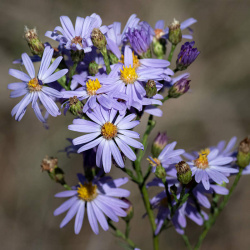 On Sale!
Sky Blue Aster Seeds
Aster azureus
These dainty, azure blue flowers will blanket a fall meadow in stunning beauty. A great source of pollen and nectar in the late fall. Also perfect for a vase or dried flower arrangement.Quick View$3.75 Pkt - $32.00 / Oz
On Sale!
Sky Blue Aster Seeds
Aster azureus
These dainty, azure blue flowers will blanket a fall meadow in stunning beauty. A great source of pollen and nectar in the late fall. Also perfect for a vase or dried flower arrangement.Quick View$3.75 Pkt - $32.00 / Oz -
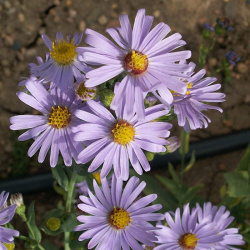 On Sale!
Smooth Blue Aster Seeds
Aster laevis
These bright blue flowers will add color to the autumn landscape. Unlike many asters, this variety produces perfectly smooth foliage and stems. This Aster is widely used in prairie restoration mixes.Quick View$3.75 Pkt - $15.95 / Oz
On Sale!
Smooth Blue Aster Seeds
Aster laevis
These bright blue flowers will add color to the autumn landscape. Unlike many asters, this variety produces perfectly smooth foliage and stems. This Aster is widely used in prairie restoration mixes.Quick View$3.75 Pkt - $15.95 / Oz -
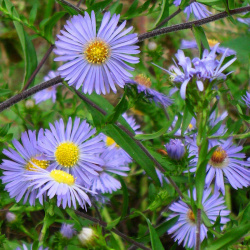 Swamp Aster Seeds
Aster puniceus
Found from northern Canada to southern Texas, this wildflower has one of the largest growing areas of any aster. The perennial usually grows in wetland or marshes, but will grow in average garden soil as well.Quick View$3.75 Pkt - $50.00 / Oz
Swamp Aster Seeds
Aster puniceus
Found from northern Canada to southern Texas, this wildflower has one of the largest growing areas of any aster. The perennial usually grows in wetland or marshes, but will grow in average garden soil as well.Quick View$3.75 Pkt - $50.00 / Oz
The Northern region is home to our Canadian friends in the eastern provinces, as well as the northern-most part of the Eastern US. This area is characterized by a long, cold winter with lots of snow, and a short humid summer that only lasts about 3 or 4 months. Most of the area is classified as a UDSA Growing Zone 4 or less, and the species that grow here have interesting ways to perpetuate themselves in spite of the short growing season. There are a lot of forests and wetlands in this region, so adequate moisture is hardly ever a problem. Look up your growing zone to make sure that the Northern wildflower seeds that you want to grow are winter hardy. Alternatively, just order annual flower seeds online so that the plant does not need to make it through the winter, but can reseed itself and come back from seed the next year.

